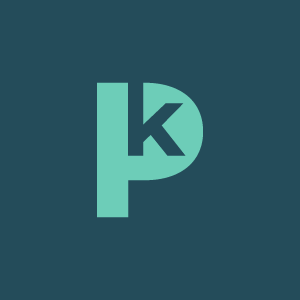Leveraging HRAs as a health insurance broker
Brokers • January 3, 2020 at 5:55 PM • Written by: PeopleKeep Team
A good health insurance broker wears many hats. Beyond simply selling health insurance, they’re viewed by their customers as a trusted advisor and an industry expert. Rather than recommending a policy that will help them make the highest commission, the goal of a respected broker is to help their clients find the options that best meet their needs.
Brokers working with businesses are highly familiar with the group health insurance market and the available plans. But what alternative is there when a group insurance plan isn’t a good fit for a customer, or an additional health benefit option is needed?
Health Reimbursement Arrangements (HRAs) allow businesses to set an allowance of tax-free money for employees to be reimbursed for health care expenses like out-of-pocket expenses and, depending on the type of HRA, health insurance premiums. HRAs can help fill the gap when other health benefits aren’t an option. Knowing how to leverage HRAs as a broker can be a valuable tool for expanding your business prospects.
When is an HRA a good fit?
For some businesses, especially those with fewer than 50 employees, group health insurance can be too expensive. In this case, a business offering an HRA to their employees can allow them to offer a valuable health benefit though they’ve been priced out of a traditional group plan.
In another scenario, a business might be interested in offering a high deductible group health insurance plan to save money on premium costs. By offering a group coverage HRA, they could offer employees reimbursement for out-of-pocket expenses to offset the high deductible costs, while still keeping premiums low.
HRAs are also a good option for employers that have never offered benefits before and that have employees in a variety of coverage situations. An HRA can allow employers to reimburse employees who have their own individual coverage, who are covered under a spouse’s employer-sponsored group plan, and employees who have never had insurance before.
The benefits of having HRA options in your arsenal
Brokers that are prepared to assist customers in obtaining an HRA will not only be helping their clients save money and provide a valuable health benefit. They’ll also be putting themselves in a position to:
- Increase their customer base by having more options for companies of varying sizes and budgets.
- Retain more customers by preventing the loss of group health insurance clients due to cost.
- Provide a tax-free solution to clients not currently offering formal health benefit.
- Increase revenue by selling individual health insurance to the employees of customers offering an HRA.
How to help customers offer an HRA
To be in the best position to help customers offer an HRA, a broker should establish a relationship with an HRA partner. A good HRA partner is an HRA provider like a Third Party Administrator or Third Party Advisor. They should have various HRA options, a specific program for working with brokers, a great reputation, and make offering an HRA simple. Other things to look for in a partner is a single point of contact for brokers and a company that doesn’t sell insurance.
The point of a broker partnership with an HRA provider is to establish a mutually beneficial relationship. Through the partnership a broker can use the resource to retain clients they might have otherwise lost and gain new opportunities for clients they didn’t have before. The HRA provider will gain new customers for the HRA products and a resource for future business through the broker.
Conclusion:
In the shifting health benefits market, HRAs have become a popular option for those that can’t afford traditional benefits. Businesses that work with brokers to meet their employee health benefit needs look to the broker for advice on the options that are best for them. Traditional group benefits are a great option for many, but some businesses are looking for a more flexible option that can fit their budget. A broker that understands when an HRA may be a better fit than traditional group health benefits and that has the resources to establish an HRA for clients will be in the best position to serve their customer’s diverse needs.
Learn more about HRAs by checking out our other resources on the topic.
